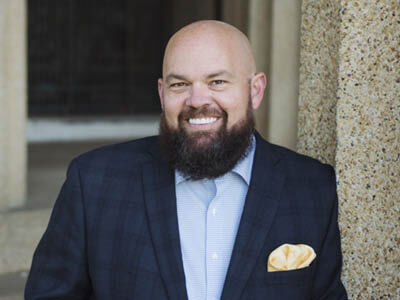New Survey Finds Broad Pessimism Among Americans Six Months Into the Trump Administration
News > Business News

Audio By Carbonatix
6:54 PM on Tuesday, August 19
By Erin Cogswell | Wealth of Geeks
Halfway through the first year of President Trump’s second term in office, most Americans are pessimistic about where things are heading. According to a new survey, only 31% feel better off financially than they did at the start of the year, and just 38% think the U.S. economy is moving in the right direction.
Clever Offers surveyed 1,000 Americans on June 25, 2025, asking their opinions on a range of economic, political, and social topics. After six months of general uncertainty marred by sweeping changes in economic and social policy, government spending, and more, it’s clear that consumers are feeling the pinch.
“Medical supplies have increased by 18%, monthly rent has increased by $400, and insurance premiums have increased by $1,200 per year,” said Dr. Eleonora Fedonenko, Medical Director and Dermatologist at Your Laser Skin Care in Los Angeles.
Individually, such increases might seem manageable, but taken together, they can put a constant strain on business owners. With U.S. tariffs on imports in place as of August 7, some as high as 50% — 57% of consumers believe things will only get worse.
How Consumer Sentiment Has Changed Throughout the YearThe first quarter of 2025 saw consumer confidence drop from 74 in December 2024 to 57.9 in mid-March. It has since ticked back up to 61.7 in July, and that optimism is reflected in Clever’s survey. When polled by Clever in March, 74% of Americans felt worse off economically than they did six months prior; 69% say the same now.
The number of people expecting a negative economic impact from tariffs has also declined, from 72% in March to 67% now. However, it’s possible that consumers simply haven’t seen the full impact of the tariffs yet.
“Prices will start rising,” said Francesco Bogliacino, an economics professor at Catholic University of the Sacred Heart in Milan. “The most recent data showed that the pass-through of tariffs into prices has been increasing (it was relatively slow).
There’s also been a slight shift in how people view the reactions to the potential financial impact of the Trump Administration’s policies. In March, 46% of Americans said people were underreacting, while 30% said they were overreacting. Today, both have increased: 49% see underreactions, and 35% see overreactions.
The number of Americans who are worried about their job security has also increased, from 35% in March to 42% now. And in what might be the most significant jump, 85% of people are worried about changes to Medicaid and Medicare, while 65% said this three months ago.
“The cuts in Medicare and Medicaid are quite unpopular, with households anticipating negative consequences,” Bogliacino said.
What Pessimism Means for Real-Life DecisionsConsumer sentiment can have real-world consequences, especially if that sentiment is negative. For instance, 61% of people anticipate reducing spending on non-essential items in the next six months due to economic uncertainty.
In addition to running her skin care practice more conservatively, Fedonenko has also cut over $20,000 in upcoming personal expenses.
“These were plans that I had long planned on and associated with milestones in life,” she said. “The moment did not seem responsible anymore.”
David Quintero, the CEO of NewswireJet, agreed that he feels worse off now than he did six months ago, although not because of any significant financial hit. Instead, he feels the steady pressure of higher costs on everyday things.
To better manage inflation, he said he’s automated his budget tracking and shifted some savings into higher-yield accounts to make the most of idle cash.
“Groceries, utilities, and insurance premiums all feel heavier, and it adds up,” Quintero said. “I’ve definitely cut back on non-essential spending like travel and eating out.”
While reining in spending can be a natural reaction to economic uncertainty, some experts say doing so could further slow the economy down. Rami Sneineh, Vice President of Insurance Navy Brokers, focuses on risk management and said negative emotions can be self-fulfilling.
By cutting back on their expenses, people could create a domino effect across all industries, but particularly in those that rely on discretionary spending, like travel, entertainment, and luxury items.
“A lower level of spending could cause delays in those sectors, making the thought that things are not improving even stronger,” Sneineh said.
What This Means for the Real Estate MarketAmericans’ economic worries extend to the real estate market, with 71% counting it among their top concerns. Nearly a third of people are worried they won’t be able to afford their housing payments in the next six months.
“Most Americans would indeed struggle in the event of a severe housing market downturn, which helps explain the anxiety,” Bogliacino said. “That being said, I don’t see concrete signals of a real estate market crash.”
The Trump Administration says it’s focused on increasing homeownership and lowering both interest and mortgage rates. Throughout the summer, the president has put pressure on the Federal Reserve to cut interest rates, although this doesn’t always mean mortgage rates will also fall.
Expediting or eliminating some of the steps and paperwork involved in the permitting process is another solution the administration has offered to reduce housing costs. However, with other actions like tariffs and mass deportations threatening to raise the cost of living, potential buyers may stay on the sidelines regardless of whether home prices drop.
Riding Out an Uncertain EconomyApproaching the second half of the year, 45% of Americans say affording necessities is harder than it was six months ago. Most don’t believe home ownership is even attainable for the average person. The worse things get, the more perception begins to look like reality. Uncertainty has real consequences.
As consumers ride out the year’s uncertainty, experts urge the importance of staying calm. Mindfulness around spending is generally a good habit — tracking cash flow and mapping out a plan for every dollar. Ignoring the rhetoric around the economy is also crucial. Bogliacino cautions against knee-jerk reactions to stock market blips.
“The conventional recommendations apply: always try to save, and diversify any risk,” he said.







